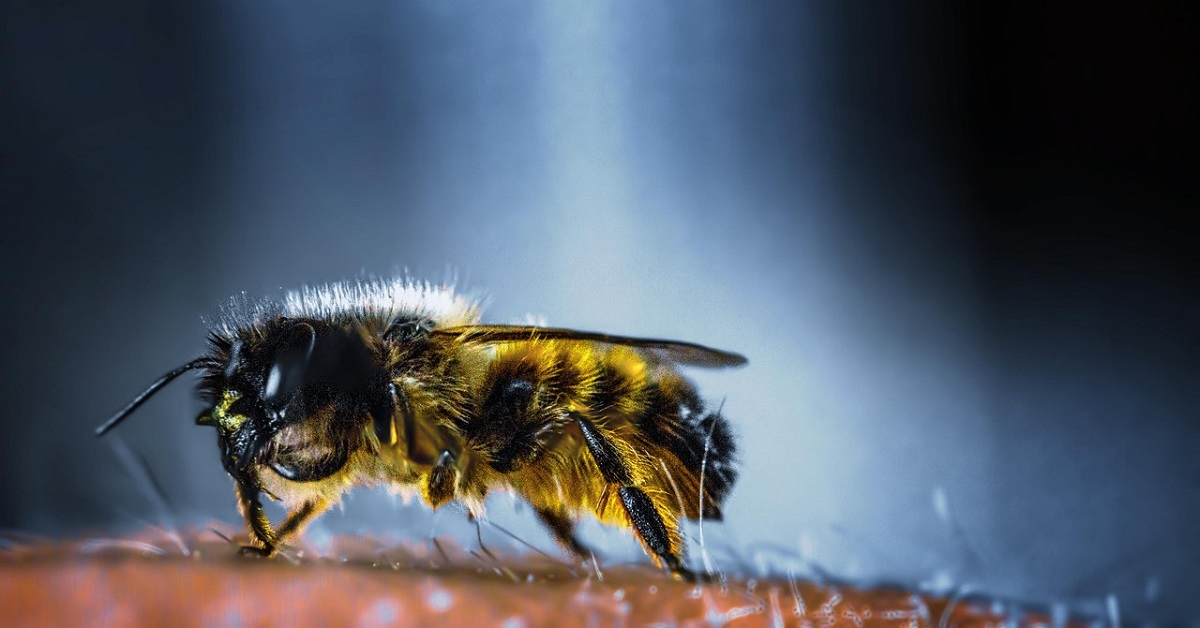
The majority of bug bites and stings are minor and will heal within hours or a few days. However, they can become contaminated, trigger a life-threatening allergic reaction (anaphylaxis), or transmit dangerous diseases like malaria and Lyme disease. Before travelling outside the country to a destination where you might encounter insects, it’s important to learn how to treat insect stings in Birmingham.
Wasps, bedbugs, hornets, bees, ticks, horseflies, mosquitoes, fleas, spiders, and midges are among the insects that bite or sting.
Symptoms of insect stings
Insect stings typically result in a red, swelling lump on the skin. This can be uncomfortable and irritating in some circumstances.
The symptoms will usually go away within a few hours or a few days, however, they may continue a bit longer in rare cases.
A moderate allergic reaction occurs in some persons, resulting in a swollen, red, and painful area of skin around the sting or bite. Within a week, this should be over. A severe allergy might develop on rare occasions, resulting in symptoms such as difficulty breathing, dizziness, and a swelling face or lips. This necessitates prompt medical attention.
Learn how you can travel safely with allergies in our previous blog post here:

What is the most effective way to treat insect stings in Birmingham?
To cure an insect sting, do the following:
– If the sting is still in the skin, remove it.
– Use soap and water to clean the afflicted area.
– For about 10 minutes, apply an ice pack or a cold cloth (like a flannel or towel soaked in cold water) to any swelling.
– If possible, elevate the affected area to assist in minimising swelling.
– To limit the risk of infection, avoid scratching the affected area.
– Traditional home remedies like bicarbonate of soda and vinegar should be avoided because they are unlikely to assist.
The pain, swelling, and itching might linger for several days. Consult your pharmacist regarding pain relievers, itching creams, and antihistamines, as well as other medications.
Where can I treat insect stings in Birmingham?
If you need support, see your doctor, pharmacist, or call NHS 111 if:
– You’re scared about a sting or bite.
– Your symptoms don’t really improve or are becoming worse after a few days.
– You have been stung near your eyes, mouth, or throat.
– A significant region of skin around the sting gets red and swollen (about 10cm or more).
– You’re experiencing signs of wound infection, like pus, swelling, or redness.
– You are experiencing symptoms of a broader illness, such as a fever, swollen glands, as well as other flu-like symptoms.

When should you worry about an insect bite?
If you or someone else is experiencing symptoms of a serious reaction, call 999 for an ambulance right away. These include:
– Trouble breathing or wheezing
– Swelling of the face, mouth, or throat
– Being ill or feeling ill
– A rapid heartbeat
– Feeling dizzy or faint
– Swallowing problems
– Loss of consciousness
In these situations, you will need hospitalisation.
How to prevent insect stings and bites
You can decrease your chances of being stung or bitten by insects by taking a few basic precautions.
You should, for example:
– If you come across wasps, hornets, or bees, stay cool and move away gently – don’t swat them or swing your arms around.
– Wear trousers and long sleeves to conceal exposed skin.
– When going outside, wear shoes.
– Apply insect repellent to bare skin – the most effective repellents include 50 percent DEET (diethyltoluamide).
– Avoid using soaps, shampoos, and deodorants that have strong fragrances since they attract insects.
– Be cautious around blossoming plants, garbage, trash, stagnant water, and outside dining areas.
If you are travelling to a section of the world where serious illnesses are a possibility, you may have to take extra measures. Antimalarial medications, for example, can be prescribed to assist in preventing malaria.
Visit Saydon Pharmacy today for treatment and travel advice.
Contact Us Treat Minor Ailments
This blog post was written on behalf of Saydon Pharmacy by Pharmacy Mentor.
